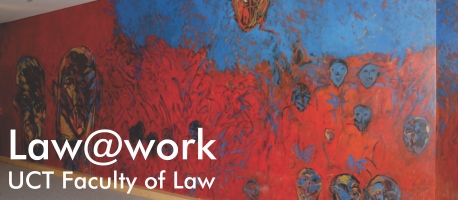
A comprehensive examination of the legal frameworks governing international financial institutions (IFIs) such as the African Development Bank, Bank for International Settlements, Group of 20, Financial Stability Board, International Monetary Fund, Paris Club, Trade and Development Bank, or the World Bank.
From a South African perspective, this twelve-hour course especially examines the complex relationship between the IFIs and South Africa as one of Africa's largest and most influential economies. In recent years, the country has relied on support from these institutions to address issues like the economic fallout from the COVID-19 pandemic, energy challenges, and persistent inequality.
When and where?
11 to 14 May 2026, 14:00 to 17:00 SAST
This course will be held remotely, most likely on Zoom - exact details will be sent to registered participants a few days before the course.
Course outline
Participants will explore the legal foundations, governance structures, and the regulatory mechanisms through which these institutions operate. Through case studies, policy analysis, and critical discussions, participants will assess the impact of IFIs on the global financial system, developing countries, and international economic law. The course also explores current debates on IFI reforms and their role in addressing global challenges such as climate change, poverty reduction, and financial crises.
In this course, we will cover:
- The legal status of IFIs, their decision-making processes, and accountability structures.
- Financial assistance mechanism and conditionality
- Sovereign debt restructuring and the role of IFIs crisis management
- The relationship between IFIs and international law, human rights and environmental concerns
Who will benefit from this course?
Legal practitioners, legal advisers, policymakers, economists, academics, researchers, and students with a focus on international and financial law as well as development aid
Presenter
Dr Sebastian Krafzik's research focuses on ethical practices within the banking and finance sectors by examining the international regulatory frameworks that govern financial institutions and markets, including high-income and developing countries. He studied law and economics at Goethe University Frankfurt and has practical experience in financial supervision from his roles at the Financial Conduct Authority and the Stock Exchange in Germany. He also developed investor protection and proxy advising expertise acquired during his tenure at an international law firm. Sebastian began his academic career as a research assistant on a project that addressed banking regulation in the wake of the recent global financial crisis at the University of Leuven. He earned his doctorate in law from the University of Basel, graduating insigni cum laude. In his comparative dissertation, he elucidates the essential role of board governance in shaping responses to corporate scandals across Europe. Sebastian has accumulated extensive teaching experience in various subjects, including Banking Law, International Trade Law, Private International Law, Mercantile Law, Property Law, and Contract Law. His involvement with African academia began when he was invited to lecture at the Catholic University of Malawi.
How much?
R6,600 per person
Certificate
A digital certificate of attendance from UCT will be issued to those who attend the full course.
Please note that the digital certificate can only be viewed on a secure portal. It cannot be downloaded or printed. You will have the option of ordering a hard copy of the certificate at your own cost, including the cost of the courier fee. More information is available here.
No certificate will be issued without the full course fee having been received. Please allow up to three weeks after the end of the course for certificates to be processed.
How to sign up
Complete and submit the registration form. You will then be given the payment information. Please note that your registration is not complete until payment has been made.
One or two days before the course, we will send you the Zoom link. You will need to register and use a password to access the course.
Registrations close three days before the course starts.
Download the brochure.

